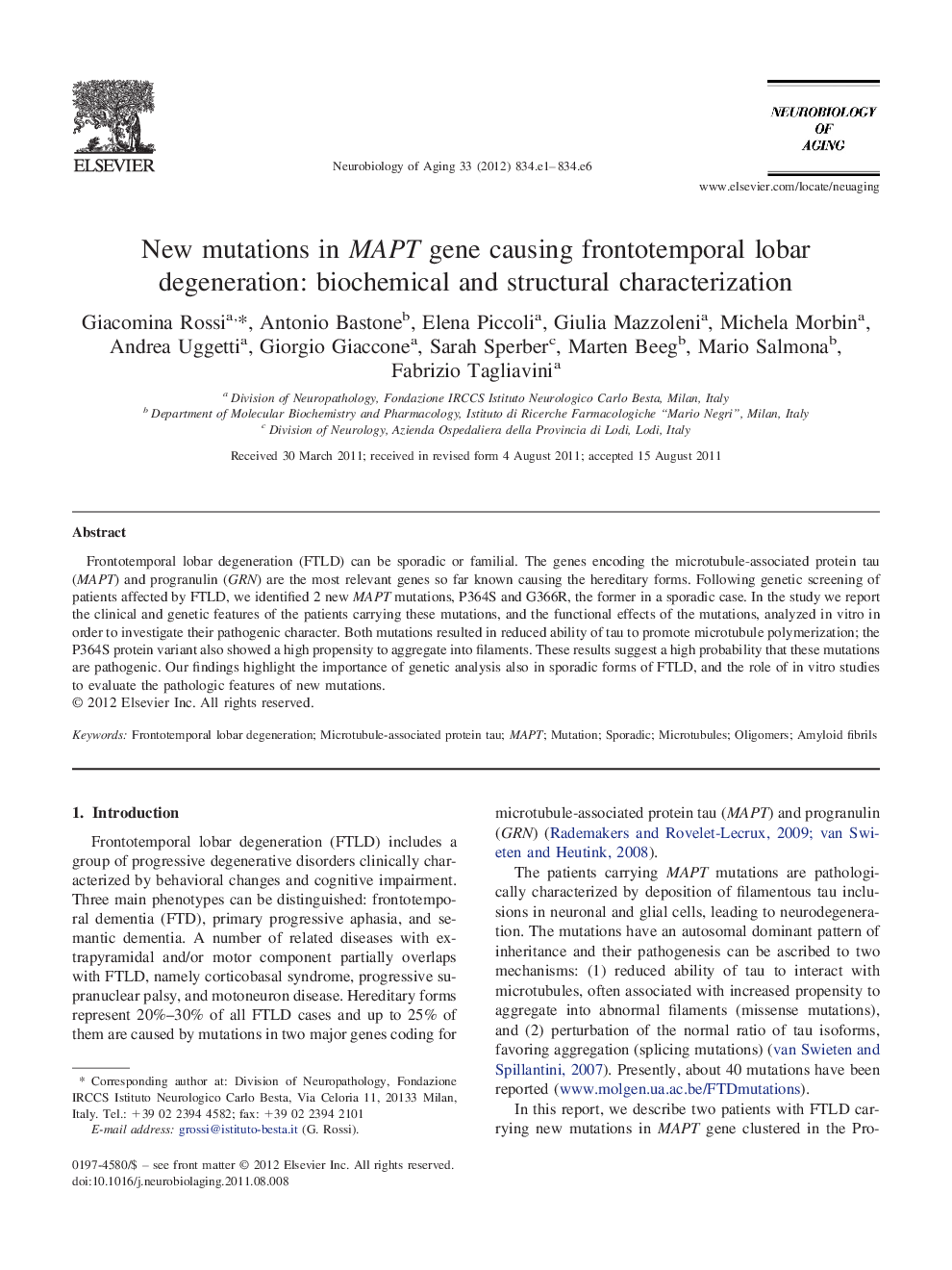| Article ID | Journal | Published Year | Pages | File Type |
|---|---|---|---|---|
| 6809533 | Neurobiology of Aging | 2012 | 6 Pages |
Abstract
Frontotemporal lobar degeneration (FTLD) can be sporadic or familial. The genes encoding the microtubule-associated protein tau (MAPT) and progranulin (GRN) are the most relevant genes so far known causing the hereditary forms. Following genetic screening of patients affected by FTLD, we identified 2 new MAPT mutations, P364S and G366R, the former in a sporadic case. In the study we report the clinical and genetic features of the patients carrying these mutations, and the functional effects of the mutations, analyzed in vitro in order to investigate their pathogenic character. Both mutations resulted in reduced ability of tau to promote microtubule polymerization; the P364S protein variant also showed a high propensity to aggregate into filaments. These results suggest a high probability that these mutations are pathogenic. Our findings highlight the importance of genetic analysis also in sporadic forms of FTLD, and the role of in vitro studies to evaluate the pathologic features of new mutations.
Keywords
Related Topics
Life Sciences
Biochemistry, Genetics and Molecular Biology
Ageing
Authors
Giacomina Rossi, Antonio Bastone, Elena Piccoli, Giulia Mazzoleni, Michela Morbin, Andrea Uggetti, Giorgio Giaccone, Sarah Sperber, Marten Beeg, Mario Salmona, Fabrizio Tagliavini,
